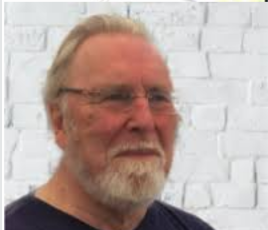Asia-Pacific Mental Health and Well-being Congress
THEME: "Future Directions: Pioneering Mental Health and Well-being Initiatives"
 27-29 Oct 2025
27-29 Oct 2025  Bali, Indonesia
Bali, Indonesia THEME: "Future Directions: Pioneering Mental Health and Well-being Initiatives"
 27-29 Oct 2025
27-29 Oct 2025  Bali, Indonesia
Bali, Indonesia 
International Journal of Psychotherapy EAP, UK
Title: Psychotherapy is not a mental health / quasi-medical treatment; it is more of a (soft-revolutionary) psycho-social exploration
Courtenay Young is a UK psychotherapist of
40+ years standing, registered with the UKCP (of which he is currently a
Trustee) and the European Association for Psychotherapy (EAP), of which he has
been a Board Member for 30 years, and the Editor of their International Journal
of Psychotherapy (since 2011). He has
published two books, several edited books and many published journal articles. His special interests are body-oriented
psychotherapy, short-term effective psychotherapy, and working with people in spiritual
crises and emergencies. He lives near
Edinburgh in Scotland.
Psychotherapy is not a mental health / quasi-medical
treatment; it is more of a (soft-revolutionary) psycho-social exploration. There is a
common mistake (by health ministries in different countries) in classifying
psychotherapy within the "medical model".
The basis of my talk is that the professional competences of a psychotherapist, in the International Standard Classification of Occupations (ISCO), is a sub-set within the classification of a psychologist (2634). This is listed under Legal, Social and Cultural Professionals (26) [rather than within Health Professionals (22)]. The significance and immediacy of this point is that the ISCO classifications get adjusted every 20 years and the next adjustment is due in 2028. Professional psychotherapy associations across the world therefore need to act quickly within their own countries and internationally. In Europe, we have established that a ‘Psychotherapist’ has a significantly different set of Core Competences from a Psychologist and therefore is a distinct profession. I quote the (new) ESCO description: Psychotherapists assist and treat healthcare users with varying degrees of psychological, psychosocial, or psychosomatic behavioural disorders and pathogenic conditions by means of psychotherapeutic methods. They promote personal development and well-being and provide advice on improving relationships, capabilities, and problem-solving techniques. They use science-based psychotherapeutic methods such as behavioural therapy, existential analysis and logotherapy, psychoanalysis or systemic family therapy in order to guide the patients in their development and help them search for appropriate solutions to their problems. Psychotherapists are not required to have academic degrees in psychology or a medical qualification in psychiatry. It is an independent occupation from psychology, psychiatry, and counselling.
I will describe these Core Competences, demonstrating how these fall with a psychosocial, mental health and well-being perspective, as well as describing the rest of the Project. For a fuller description of these professional competences, see www.psychotherapy-competence.eu. Abstract should give clear indication of the objectives, scope, results, methods used, and conclusion of your work. One figure and one table can be included in your results and discussions.